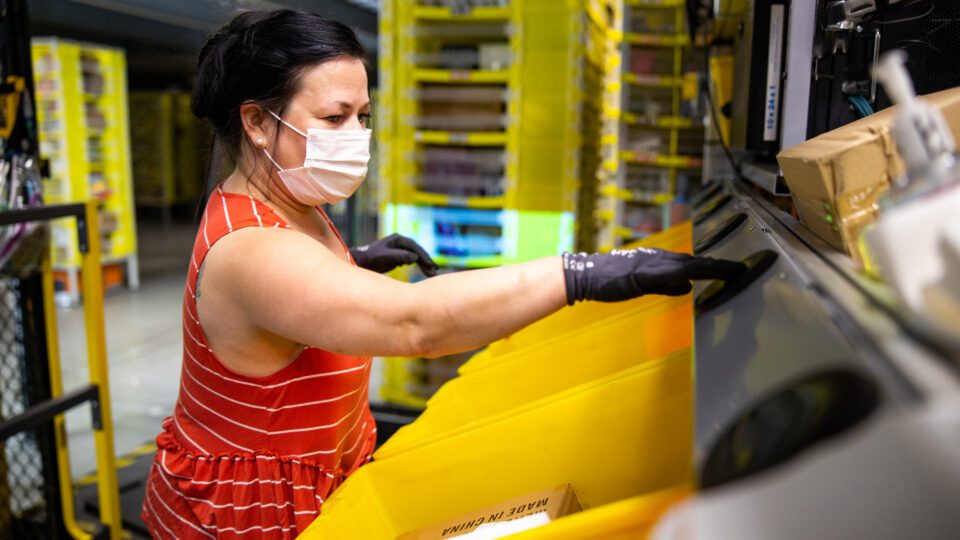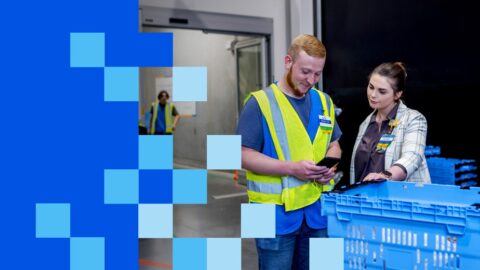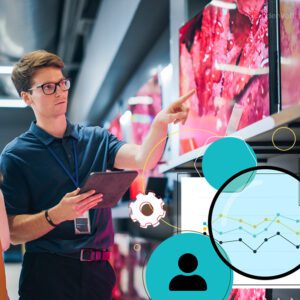Amazon is rolling out new AI-powered technology across its warehouses to detect damaged goods in a bid to decrease the number of damaged items sent to customers and speed up the fulfillment process, The Wall Street Journal reports.
The AI is 3X more effective at identifying damage than warehouse workers, to whom the task currently falls, Christoph Schwerdtfeger, a software development manager at Amazon, told WSJ. The tech is already in place at two fulfillment centers and Amazon plans to roll out the system to 10 more warehouses in North America and Europe.
The AI has been inserted into the picking and packing process. Items are picked by workers for orders and placed in bins, then moved through an imaging station. Previously, the role of the imaging station was to confirm that the right products had been picked, but now items also are scanned for damage. If a damaged item is detected, the bin is delivered to a worker who will inspect the item further and continue with the fulfillment process or replace the damaged product. The AI was trained on images of both damaged and undamaged items to enable it to detect the difference and to flag products that don’t look perfect, Schwerdtfeger said.
Checking for damage can be a time-consuming process for workers, according to Jeremy Wyatt, Director of Applied Science at Amazon Robotics, who told WSJ it’s “cognitively demanding because obviously you’re looking for something that’s rare and it’s not your primary job.” Amazon estimates that fewer than one in every 1,000 items it handles is damaged, but that still adds up given that the company handles approximately 8 billion packages annually.
Amazon is not alone in looking to AI to reduce costs, friction and inefficiencies across its business, particularly in the complicated and costly supply chain arena. Walmart also is working to increase the automation capabilities of its fulfillment centers, and Albertsons’ new partnership with Afresh Technologies is helping the grocer reduce food waste.
MIT Professor Dr. Yossi Sheffi, author of The Magic Conveyor Belt: Supply Chains. A.I., and the Future of Work, told Retail TouchPoints that AI’s consumption and use of millions of disparate data points is a key element of its value, further multiplied when AI-powered solutions work in tandem with IoT sensors and visibility software.















